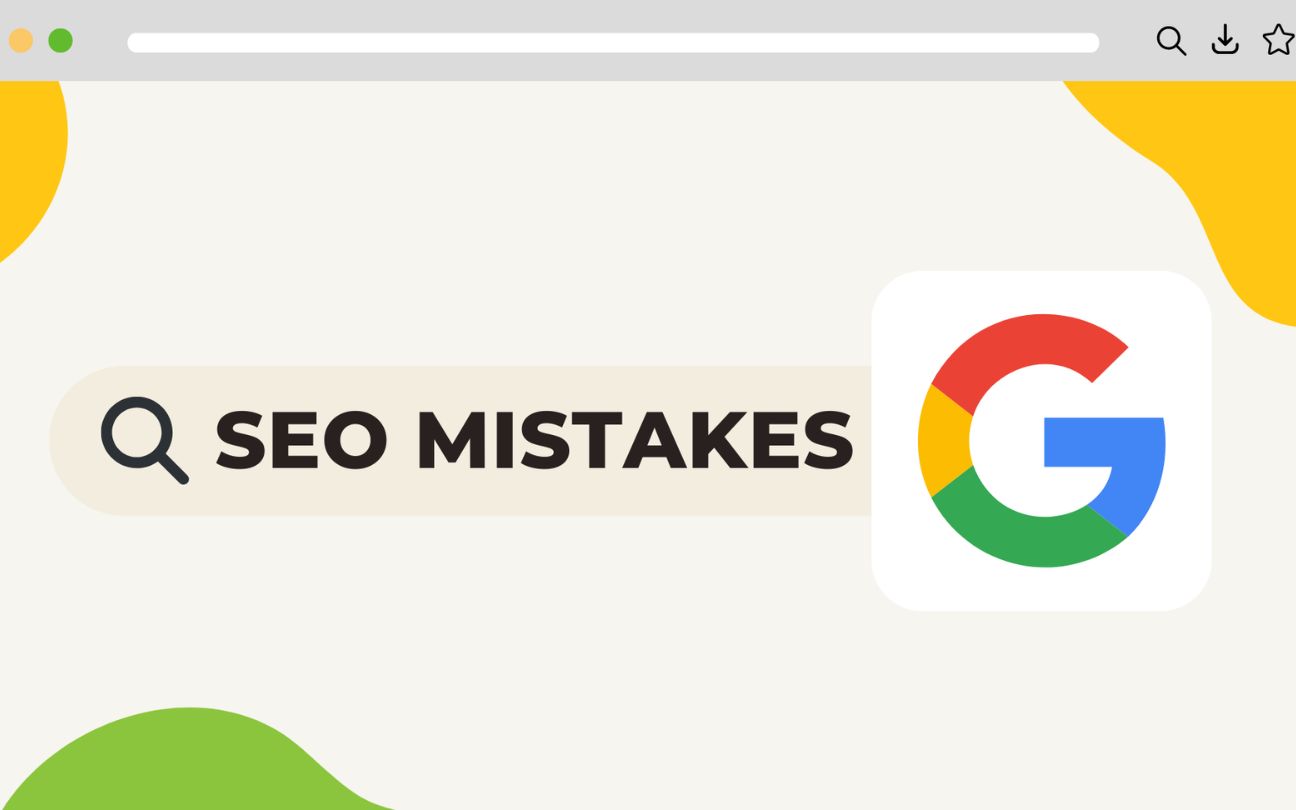
Search Engine Optimization (SEO) is an important aspect of digital marketing, but it is complicated and difficult. In this article, we’ll look at some of the most common SEO mistakes made by marketers and offer advice on how to avoid them. You can improve your website’s rankings and visibility, attract more organic traffic, and increase revenue by avoiding these blunders.
Mistake 1: Failing to Understand Your Audience
Understanding your target audience is a basic SEO principle. It is critical to understand your target audience thoroughly, including their preferences, behaviour, and intent. Failure to understand your audience results in the use of inappropriate keywords, the creation of irrelevant content, and the loss of opportunities. To avoid making this mistake, research the market, collect historical and real-time data, and use keyword planning tools.
Mistake 2: Failure to Develop an SEO Strategy and Roadmap
Many businesses fail to develop or implement an SEO strategy. Organizations struggle to maximise opportunities in the absence of a sustainable and efficient strategy. A roadmap is essential for success, and it must involve multiple stakeholders such as the website, public relations, content, product, information technology, and engineering. To avoid this blunder, assess and comprehend your competition, agree on workflows, and seek out technologies that will aid in your strategy.
Mistake 3: Producing the Incorrect Type of Content
Another common SEO mistake is creating content that is unrelated to your target audience. Marketers should concentrate on creating content that genuinely answers the questions and needs of the target audience, including the use of relevant search terms. As a result, search engines will be able to identify your content as matching the keyword you’re optimising for. To avoid making this mistake, ensure that your content and SEO strategies are tightly aligned, that your content answers the questions that people are searching for, and that you adhere to Google’s best practises for search quality.
Mistake 4: Publishing Non-Original Content
Publishing duplicate content is a common SEO blunder. Duplicating text or reusing content on multiple pages harms your website’s rankings and visibility. It is critical to produce high-quality, original content that is authoritative, authoritative, and trustworthy. To avoid making this error, conduct regular audits of your website’s content, keep an eye out for duplicates, and make sure your content adds value.
Mistake 5: Failing to Optimize On-Page
On-page optimisation is an essential component of SEO. Neglecting to optimise the pages of your website for search engines can have a significant impact on your rankings. Meta tags, headings, internal linking, and keyword density are all part of on-page optimisation. To avoid making this mistake, conduct regular website audits, optimise meta tags and headings, ensure internal linking is optimised, and prioritise high-quality content.
Mistake 6: Ignoring local SEO
Local SEO is essential for companies that have a physical location. Neglecting local SEO results in the loss of potential customers, particularly those looking for a specific location. Google My Business, local citations, and reviews are examples of local SEO elements. Claim and verify your Google My Business listing, get listed in local directories, and encourage customer reviews to avoid making this mistake.
Mistake 7: Failure to Have a Mobile-Responsive Website
A mobile-responsive website is essential in today’s world. With the majority of internet users accessing websites via mobile devices, failing to optimise for mobile can harm your rankings and visibility. To avoid this blunder, make sure your website is mobile-friendly, run mobile usability tests, and optimise mobile page speed.
Summary
Today, search engine optimisation is an essential component of any content marketing strategy.
Even the best SEO professionals can make common SEO mistakes.
It is preferable to become acquainted with the difficulties that others have encountered and to avoid them in your marketing efforts. Because these seven mistakes have become so common, they are now easier to identify before they occur.
